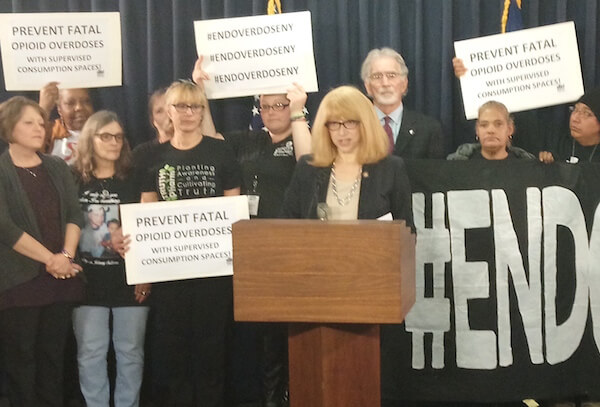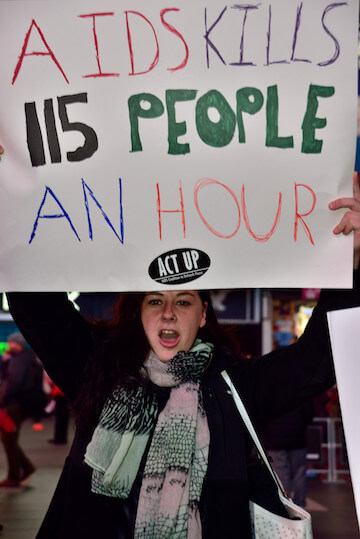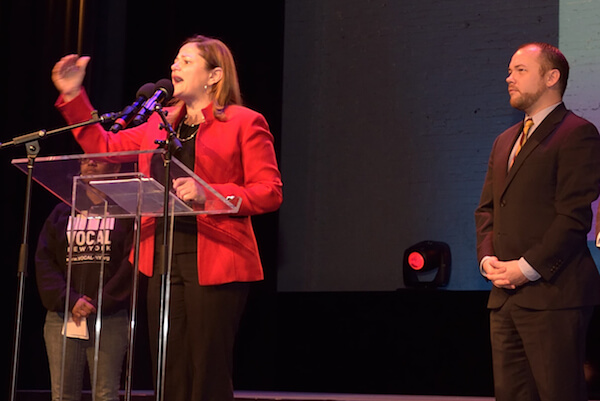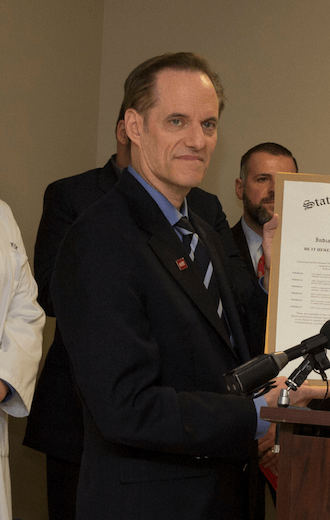A series of surveys show that the awareness and use of pre-exposure prophylaxis (PrEP) among New York City gay and bisexual men has steadily increased between 2012 and 2014.
Using data from the city health department’s Sexual Health Survey, researchers in the agency, who were led by Nana Mensah, found that the percentage of men who were aware of PrEP rose from 34 percent in a sample of 311 men in the Spring 2012 survey to 81 percent in a sample of 348 men in the Fall 2014 survey.
The Sexual Health Survey was deployed online six times from the Spring of 2012 to the Fall of 2014. The men were between 18 and 40 in all six surveys and they elected to participate in the survey, so the results cannot necessarily be extended to the wider community.
As of fall 2014, however, uptake “remained low overall” among New York gay, bi men
In Spring 2012 survey, 1.6 percent of the 311 men reported using PrEP within the six months prior to taking the survey, and 6.6 percent of the 348 men in the Fall 2014 survey reported using PrEP in the six months prior to taking the survey. PrEP, anti-HIV drugs taken by HIV-negative people to keep them uninfected, was approved by the federal Food and Drug Administration (FDA) in July 2012, so the men in the Spring 2012 survey were probably enrolled in a PrEP study.
In the Fall 2012 survey, 3.5 percent of the 347 men reported PrEP use in the six months prior to taking the survey. That increase may have resulted from the attention the FDA approval received in July 2012. In both 2013 surveys, the percentage of men reporting recent PrEP use was below two percent, then it increased to 2.9 percent in the Spring 2014 survey.
Men who were between 30 and 40 and had more than a high school education were more likely to be aware of PrEP. In the Fall 2014 survey, white men were more likely than African-American men to be aware of PrEP. The data showed the only correlation with PrEP use in any of the surveys was participating in the Fall 2014 survey, which may simply mean that more men on PrEP chose to respond to the Fall 2014 survey.
The city health department data is consistent with PrEP use increases reported by Gilead Sciences, the company that manufactures and markets Truvada, the only drug approved for PrEP, and with data from the state health department showing increases in PrEP use among Medicaid beneficiaries.
PrEP, post-exposure prophylaxis (PEP), which prevents HIV infection in people with a recent exposure to the virus, and treatment as prevention (TasP), which treats HIV-positive people so they are no longer infectious, are the three pillars of the state Plan to End AIDS. All three drug regimens are highly effective when taken correctly. The plan aims to reduce new HIV infections in New York from the current roughly 3,000 a year to 750 annually by 2020.
The city data was presented at the National HIV Prevention Conference, which was in Atlanta in early December. The study authors concluded that PrEP awareness and use among the men surveyed had “increased substantially” over time, but PrEP use “remained low overall.”
Roughly 95 percent of the new HIV infections in New York are in the city. In 2014, there were 2,718 new HIV diagnoses in the city and 81 percent, or 2,194, were in men. Among men, 74 percent of the new HIV diagnoses were in gay and bisexual men.
The plan will have to reduce new HIV infections by an ambitious 72 percent over the 2014 number and it must reduce new HIV infections among New York City gay and bisexual men substantially. Annual HIV infections among those men have been high and stable since 2001.
The city is funding networks of community groups and healthcare providers to identify candidates for PrEP and get them on the drug. It is also training doctors, nurses, and physician’s assistants on PrEP. The city’s eight currently-operating sexually transmitted disease clinics will begin delivering PrEP to clients, and the health department is funding pilot projects to deliver PrEP to hard-to-reach populations. The health department recently launched an ad campaign that promotes PrEP.































